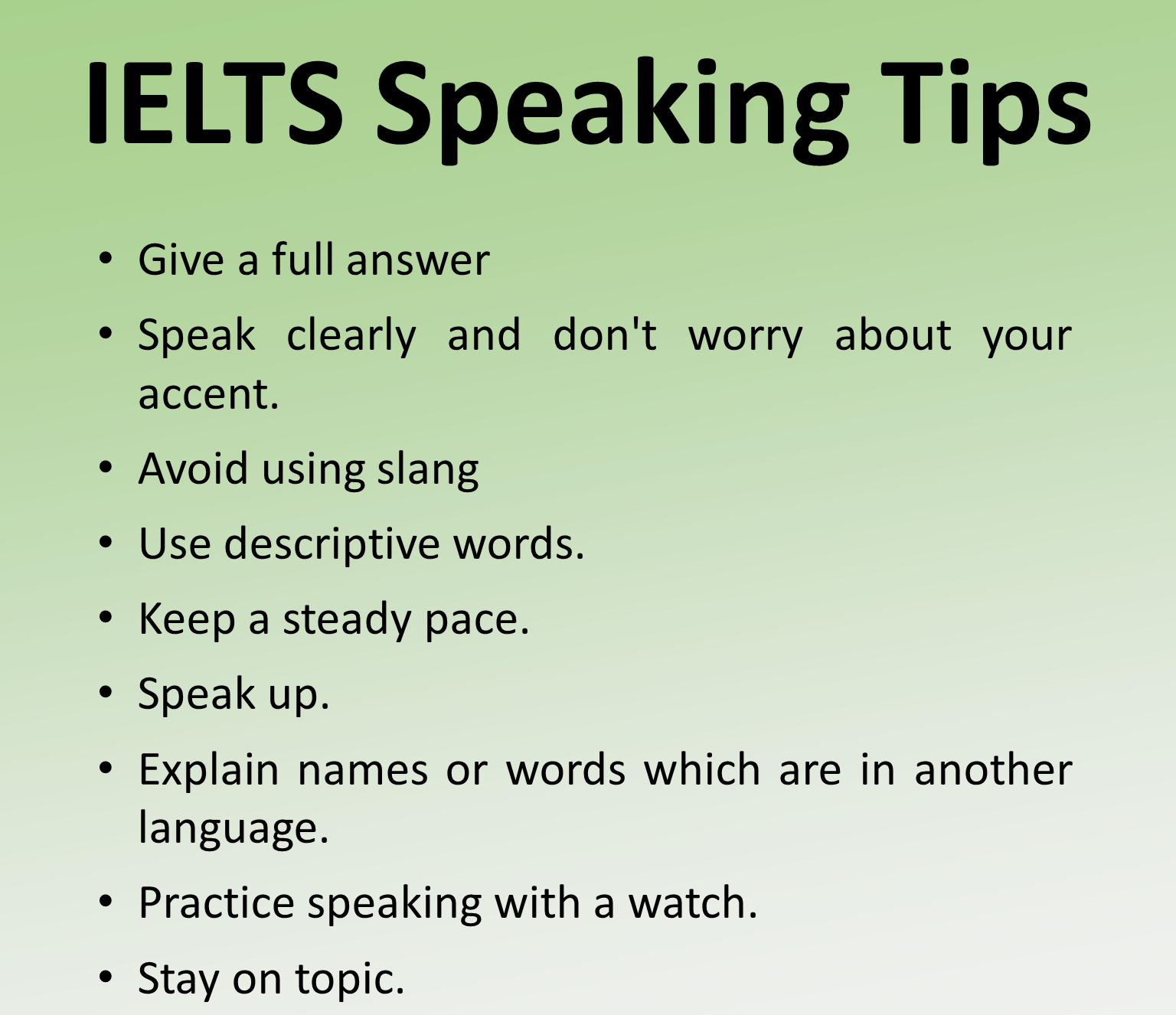The IELTS Speaking test is often considered the most challenging part of the IELTS exam, as it requires face-to-face interaction and spontaneous responses. However, with the right strategies and practice, it can also be the easiest section to improve. In this article, we will delve into the most effective IELTS Speaking tips to help you achieve a high band score.
Understand The IELTS Speaking Test
Before we dive into the tips, it’s crucial to understand what the IELTS Speaking test assesses. The exam evaluates your ability to:
Speak fluently and without hesitation: This means maintaining a smooth flow of speech without frequent pauses.
Use various vocabulary: Employing a range of words and phrases relevant to the topic.
Avoid grammar mistakes: Demonstrating accurate use of grammatical structures.
Pronounce words well: Showing good control over pronunciation and intonation13.
Top IELTS Speaking Tips
1. Commit to Speaking English Every Day
Consistency is key when it comes to improving your speaking skills. Make a habit of speaking in English daily, whether it’s with friends, family, or even by recording yourself. This will help you become more comfortable with the language and reduce hesitation during the test3.
2. Practice Answering IELTS-Style Questions
Familiarize yourself with common IELTS Speaking topics such as work, studies, sports, family, and more. Practicing these questions will help you feel more confident and prepared for the exam34.
3. Grow Your Vocabulary
Expanding your vocabulary is essential for achieving a high band score. Focus on learning relevant words and phrases related to common IELTS topics. Use flashcards or mind maps to help you remember new vocabulary37.
4. Know the Exam Format
Understanding the structure of the IELTS Speaking test is vital. The test consists of three parts:
Part 1: Introduction and general questions about yourself.
Part 2: Speaking on a specific topic for about 2 minutes.
Part 3: A discussion with the examiner on more abstract topics4.
5. Focus on Fluency and Pronunciation
Fluency and pronunciation are critical components of the Speaking test. Practice speaking clearly and smoothly, and work on improving your pronunciation by listening to native speakers and recording yourself37.
6. Use a Range of Grammatical Structures
Using a variety of grammatical structures, such as simple and complex sentences, will enhance your speech. Practice speaking about different tenses (past, present, future) to demonstrate your range7.
7. Don’t Memorize Answers
Examiners can easily identify memorized responses, which may negatively impact your score. Instead, focus on learning key vocabulary and phrases that you can naturally incorporate into your speech17.
8. Be Conversational and Emotional
Speak naturally and express your emotions. This will make your speech more engaging and authentic. Use tone and intonation to convey feelings, just as you would in your native language15.
9. Extend Your Answers
Always try to provide detailed responses. If asked a question, respond with more than just a yes or no. Use linking words and phrases to extend your answers and show coherence17.
10. Make a Good First Impression
Your appearance and confidence can set the tone for the entire test. Ensure you look professional, smile, and maintain eye contact with the examiner1.
Additional Strategies
Use Anxiety to Your Advantage
It’s normal to feel nervous during the test. Instead of letting anxiety hinder you, use it to your advantage. Take a moment to collect your thoughts and respond naturally. You can even acknowledge your nervousness with phrases like, “That’s a tough question, let me think for a moment”5.
Don’t Over agree with the Examiner
While it’s important to be respectful, don’t feel obligated to agree with everything the examiner says. Engage in a natural conversation and express your genuine opinions5.
Avoid Fillers and Speak Confidently
Filler words like “um” or “ah” can detract from your fluency. Practice speaking confidently without these fillers. Use pauses thoughtfully to add emphasis or gather your thoughts7.
Practice Common Topics
Familiarize yourself with common IELTS Speaking topics such as tourism, education, environment, and family life. Practicing these topics will help you feel more prepared and confident during the test7.
Conclusion
Achieving a high band score in the IELTS Speaking test requires consistent practice, a strong vocabulary, and effective communication skills. By following these IELTS Speaking tips, you can improve your fluency, vocabulary, grammar, and pronunciation, ultimately leading to success in the test. Remember, the key to acing the IELTS Speaking test is to be natural, conversational, and confident.
Practice IELTS Speaking on Coreskills.pk. More than 30 free mock test available on coreskills.


